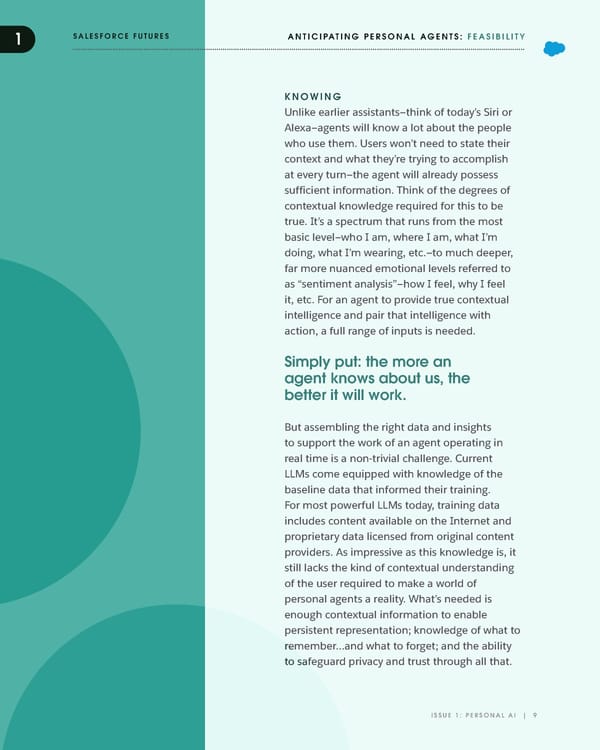1 SALESFORCE FUTURES ANTICIPATING PERSONAL AGENTS: FEASIBILITY KNOWING Unlike earlier assistants —think of today’s Siri or Alexa—agents will know a lot about the people who use them. Users won’t need to state their context and what they’re trying to accomplish at every turn—the agent will already possess sufficient information. Think of the degrees of contextual knowledge required for this to be true. It’s a spectrum that runs from the most basic level—who I am, where I am, what I’m doing, what I’m wearing, etc.—to much deeper, far more nuanced emotional levels referred to as “sentiment analysis”—how I feel, why I feel LILIAN WENG it, etc. For an agent to provide true contextual OPENAI intelligence and pair that intelligence with action, a full range of inputs is needed. Simply put: the more an agent knows about us, the better it will work. But assembling the right data and insights to support the work of an agent operating in real time is a non-trivial challenge. Current LLMs come equipped with knowledge of the baseline data that informed their training. For most powerful LLMs today, training data includes content available on the Internet and proprietary data licensed from original content providers. As impressive as this knowledge is, it still lacks the kind of contextual understanding of the user required to make a world of personal agents a reality. What’s needed is enough contextual information to enable persistent representation; knowledge of what to remember…and what to forget; and the ability to safeguard privacy and trust through all that. ISSUE 1: PERSONAL AI | 9
 Salesforce Futures Magazine Page 8 Page 10
Salesforce Futures Magazine Page 8 Page 10